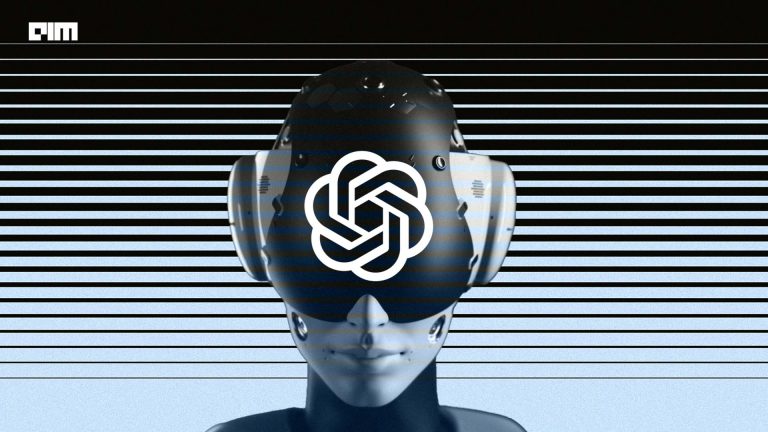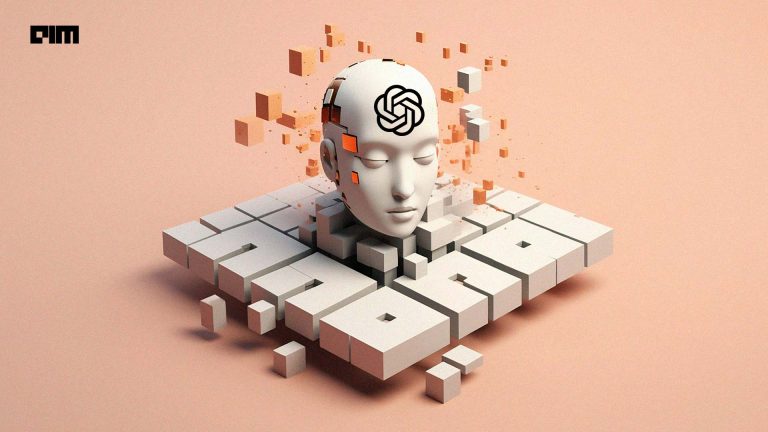|
Listen to this story
|
An AI revolution is taking shape across the globe. In the Indian context, several advancements have taken place in vision, speech, language, and imaging. However, when compared to the West, most of these are still languishing in the theory stage. “When it comes to theoretical work, we are as good as anyone,” Prof Amrutur Bharadwaj, research head and director, ARTPARK, told AIM.
The professor added that a handful of top AI research labs in India such as Indian Institute of Science (IISc), IIT Madras, IIT Bombay, IIIT Hyderabad, and others are spearheading cutting-edge AI research with a presence in the world’s top conferences and journals. “But the latest advances have gone beyond theory. The gap has further widened which we need to bridge,” he cautioned.
Some of the biggest breakthroughs in AI in recent times – deep learning model Transformers, large language model GPT-3, text-to-image model DALL-E2, and finally ChatGPT – have all come from the West.
Take the work done on protein folding or ChatGPT, for instance, which goes beyond theoretical advancements. “There is a lot of experimental and empirical work, which can be made possible by throwing in a lot of compute and data. That is where the frontier of AI is right now and in that respect, we are not there yet,” he said.
This makes us wonder, what are the chances of the next-OpenAI emerging out of India? Bluntly put, almost negligible. According to Prof Bharadwaj, “The current ecosystem is not geared to produce and support brilliant outliers.”
Financial (In)Capabilities
Despite significant progress in AI research on theoretical frontiers, we are not at par with the US, and to some lesser extent, China. The reasons for this are multifold. Firstly, the US is an affluent nation, whereas India is not. “When you are wealthy, you can play, and when you can play, you can do new things,” Prof Bharadwaj said.
Training AI models is often costly, both in terms of time and computational resources. For example, training OpenAI’s GPT-3, one of the largest Large Language Models (LLMs) to date, reportedly cost millions of dollars and required extensive computational resources. Only a handful of research labs in the world have the resources to do so. And most of the computational resources in the West are concentrated in the hands of the big tech.
India Lacks the US’ Spirit of Adventure
According to Prof Bharadwaj, another important reason is the difference in culture. “US has a spirit of adventure and exploration. The country itself was built by pioneers and explorers. They are willing to take risks. Risk-taking is in their genetic and cultural composition. They aren’t driven by social reasons. They do it because it can be done, or why else, you would put a Tesla car on the top of a rocket and launch it into space?”
This is precisely why all big tech companies such as Microsoft, Apple, Google, Meta, Amazon and OpenAI were born in the US.
Education System and Brain Drain
While India has a large pool of talented engineers and technical professionals, the education system in our country doesn’t always emphasise creativity, entrepreneurship, and risk-taking. The educational ecosystem in India doesn’t provide enough encouragement for students to pursue research, leading many talented Indian-born researchers to seek better opportunities abroad.
In fact, many Indian AI researchers can be found working in some of the top AI labs globally. Further, CEOs of Google and Microsoft – two tech behemoths battling for AI supremacy – are run by Indian-born CEOs Sunder Pichai and Satya Nadella, respectively.
India Needs a Moonshot Approach
Although it is currently unlikely for India to produce an OpenAI-like product, it would be premature to say that it would never happen in the future. “Data and computing at scale are the key inputs, which need to be coupled with an outrageous ambition, persistence, and funding to advance the state of the art by a significant quantum,” he said.
Luckily, the government of India has taken a proactive approach towards AI. Simultaneously, the government has also taken positive steps to promote entrepreneurship in the country. Umakant Soni, CEO at ARTPARK, believes there is enough research happening in the universities in India; however, they often find it difficult to actually translate that research into useful products or companies that can scale.
This is the problem the government of India needs to solve. If they do, the Indian equivalent of OpenAI could come out of the same ecosystem. “I think it has to be driven by the government and they need to pump in money into the ecosystem for a certain period of time,” Prof Bharadwaj said.
Further, there is also a need for clarity in purpose. “We can embark on ‘moonshot’ mission goals with adequate funding support to change the narrative. We have done so in the space and nuclear sectors – so it is doable,” he concluded.



















































































